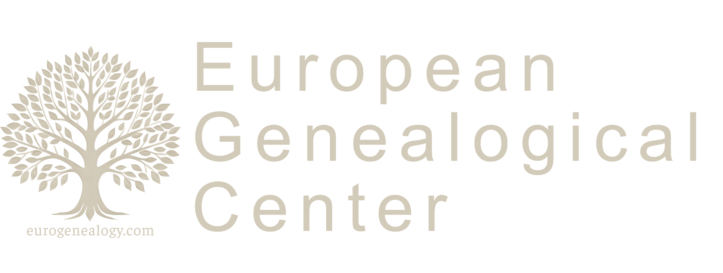Genealogical research in Slovakia: tracing ancestors & family tree reconstruction
Discover your ancestry dating back to the 16th century
Archival search and family history research in Slovakia
Exploring your family history in Slovakia opens a remarkable window into the lives of your ancestors and the broader historical setting in which they lived. The cultural and political development of Slovakia was deeply shaped by centuries of interaction with neighboring regions — particularly the Kingdom of Hungary, the Habsburg Monarchy, and later Czechoslovakia. For a significant period, Slovakia’s historical fate was intertwined with Bohemia, especially during the shared era of the Czechoslovak Republic. These connections resulted in complex administrative structures and multilingual documentation that make genealogical research both challenging and rewarding. With this intricate past as a backdrop, the European Genealogical Center provides expert assistance in tracing ancestral lines, analyzing historical documents, constructing family trees, and reviving long-forgotten family narratives. Slovak archives preserve a vast range of sources from the 16th century onward, giving researchers access to centuries of detailed personal and demographic information.
Many of our clients contact us to confirm their Slovak ancestry or to acquire the documentation required for legal or official matters — such as applying for Slovak citizenship, permanent residence, or engaging in repatriation procedures. Our research extends across the entire territory of Slovakia, encompassing national archives, regional repositories, church holdings, and municipal collections. We locate and retrieve archival records, even those thought to be lost, and provide certified copies where required. For those interested in preserving their heritage, we prepare custom-designed family history books that combine genealogical charts, archival extracts, personal stories, and — when possible — photographs and maps. Our researchers are highly experienced in navigating complex historical transitions, including border changes, renaming of settlements, and linguistic variation. This allows us to trace lineages even in regions that experienced multiple shifts in jurisdiction and population structure over time.
Sources of genealogical research in Slovakia
To reconstruct family heritage in Slovakia, we work with an extensive array of primary sources — including parish registers, civil records, school rosters, census enumerations, property files, guild and occupational listings, military records, and tax documents, often supplemented by local municipal archives, court records, and institutional collections. These materials, often written in Latin, Hungarian, Slovak, German, or Hebrew, provide insight into vital life events: baptisms, marriages, deaths, as well as social roles, professions, property ownership, and economic activities. Church books remain foundational to Slovak genealogical research, particularly those maintained by Roman Catholic, Greek Catholic, Lutheran, Orthodox, and Jewish communities. We evaluate each document with care, extracting not just names and dates, but also contextual clues that reveal patterns of migration, religious affiliation, and shifts in social standing within a broader historical landscape. Every detail adds depth to the story of your family line, helping to create a complete, accurate, and meaningful portrait of your ancestors' lives across generations.


In addition to these core records, we consult an even wider range of supplementary materials that illuminate the everyday lives, social roles, and cultural practices of people in earlier centuries across different regions and communities. These include school and university admissions, employment histories, conscription records, estate descriptions, cadastral maps, local tax rolls, guild and professional registries, and lists of eligible voters or property owners. Especially valuable are local and national censuses, which sometimes recorded entire households, providing detailed insight into family structures, living conditions, and intergenerational relationships. We also rely on rare and unique sources, such as the "Tabuľky pozemkovej vlastníctva" from the reign of Maria Theresa — a comprehensive land ownership registry that reveals economic status, property holdings, social hierarchy, and local community dynamics. By combining all these diverse sources, we reconstruct not only genealogical lines but also the broader personal, social, and historical environment in which your ancestors lived, offering a thorough, contextualized, and richly detailed portrait of past generations.
Neighboring countries where we conduct research
Examples of our research
Below you can review examples of research reports received by our customers:
Prices for genealogical services in Slovakia
You can find a detailed price list and description of all services of European Genealogical Center here
Prices for genealogical services in Slovakia
Genealogical research
From €1500
Tracing family history back to the 17th century
Biographical search
From €500 to €2000
Establishing the life story of an individual and their close relatives
Nationality confirmation
From €400 to €1500
Identifying details about a person’s ethnic origin
Document search
From €100 to €1000
Obtaining certificates, parish registers, and civil registry records
Family history book
From €2500
Creating a unique publication describing the genus history
Family history website
From €2000
Development of a personal website dedicated to your family’s history
Submit a request, and we will contact you shortly
You can also reach us directly by sending an email to: european.genealogical.center@gmail.com or writing to us in Telegram

european.genealogical.center@gmail.com
© 2026
All rights reserved
All rights reserved
Contact us:

